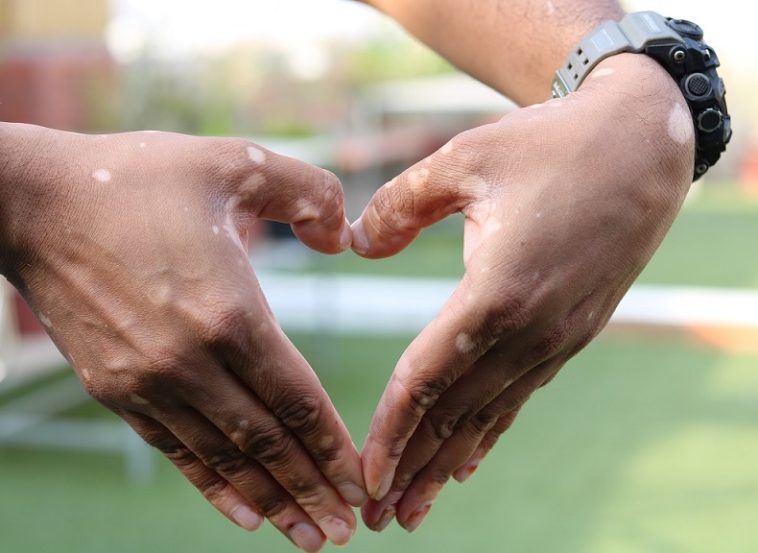From the matrimonial perspective, Neha was the ideal match. She had a secure corporate job and attractive face-features. While her parents were confident of finding her a suitable match, a small white spot on her finger (which would soon grow bigger) was about to make things worse.
Fearing that people would come to see her and cringe, she and her family decided to tell people about the problem beforehand. Result? She had to settle for way less due to pressure from her parents and relatives. She says “I am unhappily married. I always wanted to live my life on my terms. But my parents’ fear that I would not find the right match due to my skin condition ruined my life.”
Neha is not alone in this journey. In many cultures (particularly in many South Asian countries), people with vitiligo are shunned by their families, and arranged marriages are canceled/compromised due to many misconceptions surrounding vitiligo. Though the stigma attached to the chronic skin disorder has reduced over the years, people still haven’t opened up enough to marry someone with vitiligo. No wonder if youngsters with the skin condition suffer from severe depression. It’s quite easy to understand why vitiligo cripples their confidence.
There are many real-life examples where people opt for divorce because the vitiligo issue of the spouse was not disclosed before marriage. One of them is Iqbal, a 30-year-old Muslim guy who felt cheated because he was kept in the dark about the vitiligo of his wife. So, who can be blamed for this? To me, it’s low social awareness about vitiligo. Due to the lack of effective treatment, numerous myths are prevalent in the society which put marriage of people with vitiligo at stake. People consider marrying someone with vitiligo risky and finding a suitable match becomes a bigger challenge for vitiligo fighters.
Before you find yourself in such helpless situation where you are being stigmatized silently, segregated upon, and at times ridiculed for a condition you didn’t know how it came about, take the matter into your own hands. Here’s what you can do to take control of your future marital life.
Be honest
Even if your family advises you to keep it a secret, ensure that the prospective life partner knows about your vitiligo. If he/she is not ready to accept, just let it go. An early rejection is far better than a post-marriage breakup. It’s the matter of your whole life. Sooner or later, you would find a better match.
Debunk some myths
If the other side seems interested, explain them that vitiligo affects the appearance, and it’s not medically dangerous. Tell them that:
- A person dealing with vitiligo is not physically unfit. Vitiligo doesn’t impact the intellectual or mental health of an individual.
- There are tons of information available to confirm that itis a non-fatal and non-contagious skin condition. It doesn’t spread by living together, sharing personal items, eating from the same plate or making the physical relationship.
- Chances of vitiligo from parents to the kid are only around 15-25%. Hence, it is not right to say that vitiligo will pass on from parents to kids. In numerous cases, the parents of a vitiligo fighter don’t have this skin condition. Similarly, there are many cases where one or both the parents have vitiligo, but, their kids are free from it.
Marry someone with vitiligo
Marrying someone with same skin condition would set you free from the fear of judgment and feeling of insecurity for the rest of your life. You and your life partner would respect and understand each other better.

